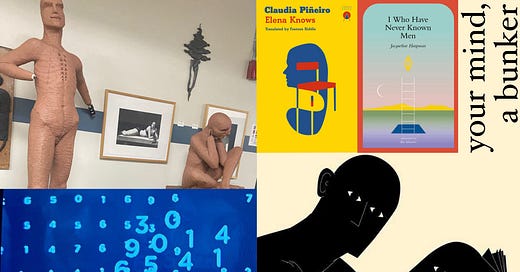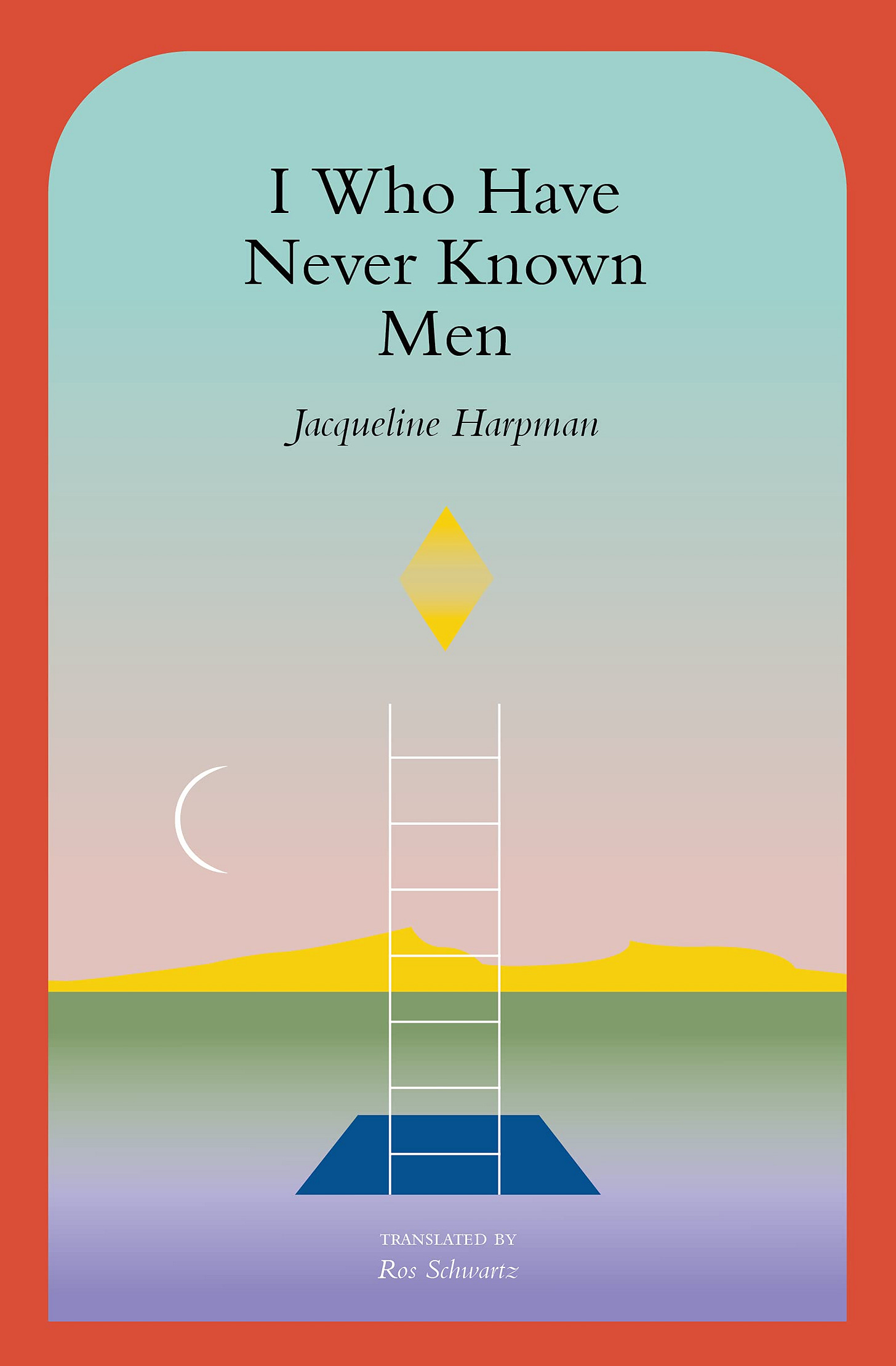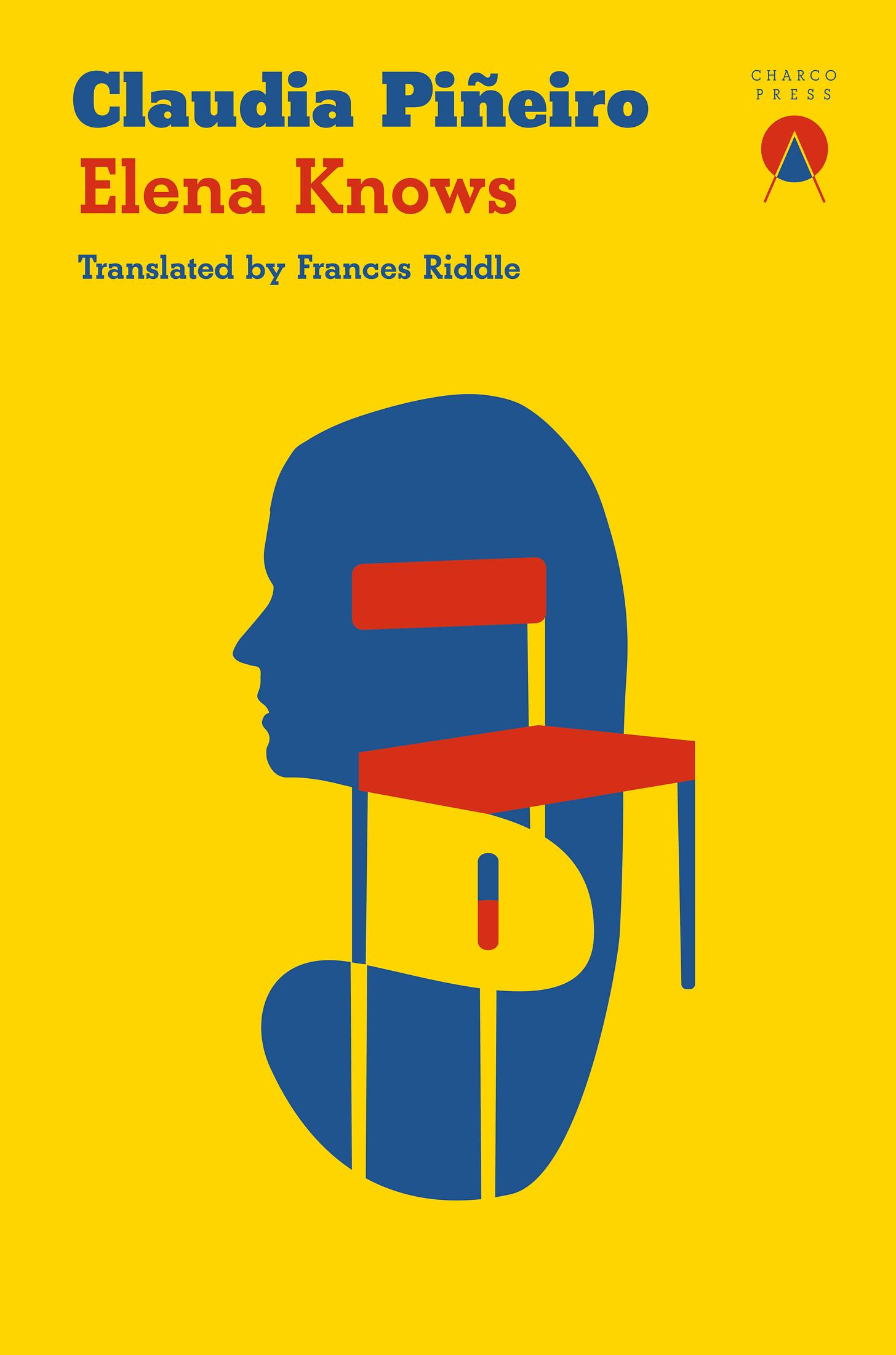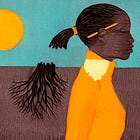you don't know what you don't know (four things friday, vol 5)
four things this week: an album, a book, a book and a tv show
FOUR THINGS FRIDAY! On fridays, I’ll pop into your inbox with a four-item list of things I’ve enjoyed or endured over the past week. Sometimes it’ll be recommendations or miniature reviews; other times, it’ll just be my random musings. Enjoy! (Since I’m in my final semester right now, I really can’t promise that this’ll be weekly…but I’ll try my best)!
1. THE ALBUM — Ethiopian Jazz Album by Mulatu Astatke
2. THE BOOK — I Who Have Never Known Men (1995) by Jacqueline Harpman, Ros Schwartz (Translator)
Genre: Literary Fiction. Dystopia. Translated Fiction (French to English).
Pages: 208
Personal Rating: ★★★
An unnamed girl, who is only ever referred to as “The Child,” has spent her entire life locked in an underground bunker with thirty-nine older women. None of them know why they have been imprisoned; none of them know who their captors even are. And The Child—who has only ever known the bunker, the guards, and the rationed meals—has never known what it means to live normally. For that reason, even within the bunker, she is treated as an outcast.
There's no continuity and the world I have come from is utterly foreign to me. I haven't heard its music, I haven't seen its paintings, I haven't read its books... I know only the stony plain, wandering, and the gradual loss of hope. I am the sterile offspring of a race about which I know nothing, not even whether it has become extinct.
— I Who Have Never Known Men (1995)
Unfortunately, I enjoyed this book less than I thought I would. It’s a wandering novel—aimless in a very purposeful way—and despite being able to acknowledge and understand the reasoning behind that particular narrative choice, I can’t say it made for a very satisfying reading experience. Harpman raises a whole bunch of observations and questions about freedom, knowledge, memory and personhood but instead of penning in any meaningful conclusions, she seems to rely on ambiguity as a substitute for any real depth. Honestly, it was a pretty frustrating read.
That being said, I will admit that witnessing The Child’s character arc was interesting. As the book progresses you observe the development of her worldview which is shaped entirely by the limited knowledge she gains from the barren world around her and the fading memories of the older women in her company. Although she remains emotionally detached for most of the book, Harpman does a good job of exploring why that is. How can someone mourn the loss of hope when they have never even known what it is they are meant to be hoping for? The Child’s lack of knowledge is, in itself, a freedom that she experiences alone. Her lack of knowledge is the one thing she uses to survive (and I’m using the word “survive” very, very loosely).
I cannot mourn for what I have not known.
— I Who Have Never Known Men (1995)
3. THE BOOK — Elena Knows (2007) by Claudia Piñeiro, Frances Riddle (Translator)
Genre: Literary Fiction. “Thriller.” Translated Fiction (Spanish to English)
Pages: 143
Personal Rating: ★★★★
When Elena, an elderly women suffering from Parkinson’s disease, hears that her daughter has been found hanging in the local church, she refuses to believe that it was suicide. She knows her daughter, knows her well enough to know that she’d never take her own life, let alone do so in a church. Battling against the conclusions drawn by the police and the local community, as well as her own chronic pain, Elena embarks on a journey to find someone she believes will help her uncover what really happened to her daughter.
People confuse thinking with knowing, they let themselves confuse the two.
— Elena Knows (2007)
As the title suggests, Elena Knows explores the distinction between knowing and thinking, the ways people confuse the two, and how this confusion can lead to irreversible harm. Elena clings to a rigid belief system, unwilling to bend or be swayed by religion or other opposing viewpoints. Her moral inflexibility mirrors her body: both are stubborn, unyielding, and resistant to change. Despite this, Elena is soon forced to confront the unsettling truth that what she believes she knows does not align with the reality that has always, always been right in front of her.
No one knows as much about her daughter as she does, she thinks, because she’s her mother, or was her mother. Motherhood, Elena thinks, comes with certain things, a mother knows her child, a mother knows, a mother loves. That’s what they say, that’s how it is. She loved and still loves her daughter even though she never said it, even though they fought and kept their distance, even though their words were like cracks of a whip, and even if she didn’t hug or kiss her daughter, she felt a mother’s love.
— Elena Knows (2007)
In addition to its exploration of knowledge, Piñeiro uses this book to examine the many ways bodily autonomy can be restricted. This is especially evident in Elena’s journey, which is constantly slowed by her body’s refusal to obey her mind. There are several moments where she desperately tries to move—willing her legs to step forward or her knees to bend—only for her body to resist. The novel also tackles bodily autonomy through different perspectives: one being religion, as seen in an overzealous preacher who condemns suicide as a sin, and another being reproductive rights, as it explores a woman’s right to choose whether to continue or terminate a pregnancy.
4. THE TV SHOW — Severance (2022 - Present)
Genre: Psychological Sci-Fi Thriller
“The work is mysterious and important.”
— Severance (Season 1, Episode 6 (2022))
Severance follows the employees of Lumon Industries, a company that has developed a controversial medical procedure called "severance," which splits a person’s consciousness into two distinct personalities: the Innie (the worker who remembers nothing about their life outside the office) and the Outie (the person outside the office with no memory of their job).
As Mark Scout struggles with the recent death of his wife, he retreats into his Innie’s existence, trying to escape the painful reality of his loss by focusing solely on his work. However, when his Outie encounters a former severed employee and uncovers more clues about the true nature of his Innie’s job, Mark begins to ask an important question: Is it really safe to remain willfully unaware of what you don’t know?
“It’s important because it actually is, or because you’re saying it is?”
— Severance (Season 1, Episode 6 (2022))
I’m probably not the first person in your life or on your corner of the internet to recommend this show, and I’m certainly not going to be the last. That said, everyone who came before me is absolutely right—Severance is definitely worth the watch.
This show plays with the concept of knowledge, or more accurately, the lack of it. I’ve really enjoyed (and am still enjoying) how the series explores the idea that memory influences not just what we know, but who we are. Can a person maintain their autonomy if they’re kept ignorant of a significant part of their life? Is the loss of memory truly an escape, or does it ultimately trap us in a false version of ourselves?
Of course, the show also serves as a powerful metaphor for how businesses dehumanise their workers in the pursuit of productivity. Through the severance procedure, Lumon Industries creates employees who initially lack any sense of individual self—their identities are defined only by their tasks. In doing so, the show also explores the power of knowledge and the chilling ways it can be wielded as a tool of control.
Plus, the opening song is catchy as fuck. Tap in!











